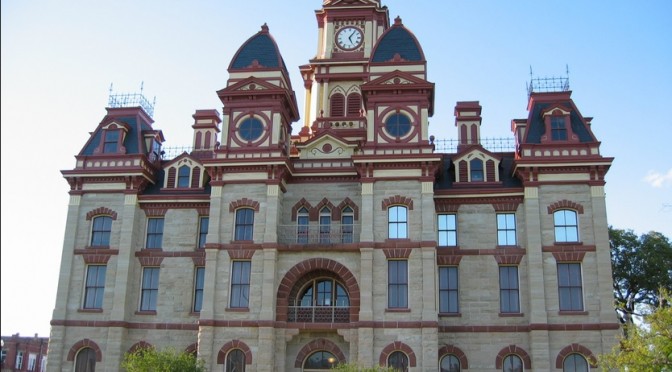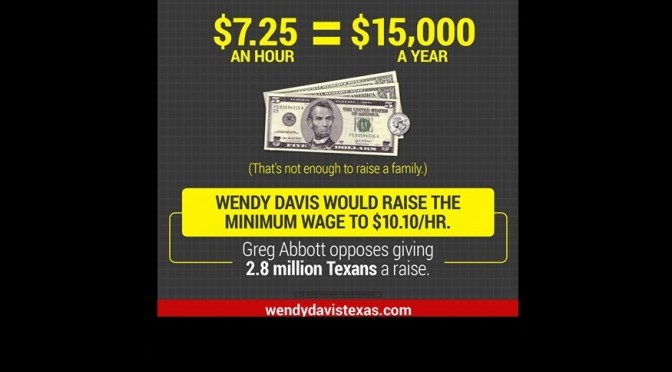
If you are a regular Texas Leftist reader, then you have probably come across some posts regarding the Minimum Wage. This blog was even mentioned on the
Forbes.com website over the issue.
It's important to blog about
why an increase in the minimum wage is needed. But along with the blogging, I am exploring …
Continue Reading ›› 
The Texas Progressive Alliance believes that it's not whether you stumble that matters but whether you get up and keep going as it brings you this week's roundup.
As the Fifth Circuit gets set to hear arguments over Texas' ban on same sex marriage,
Off the Kuff reminds us that
public opinion is much … Continue Reading ›› 
Even as we continue to disseminate all that was Election 2014, it's important to note that one issue typically associated with Progressive policies not only survived the Red Tide, but proved to be one of the night's biggest winners.
Voters in four states and the city of San Francisco all approved increases in the minimum … Continue Reading ›› 
Texas is often heralded for being the most prolific job creator in the United States. One look at the basic employment rolls reveals that in itself, that is a true statement.
What is often missed in that purely quantitative assessment of the roaring Texas job factory? Too many Texans are forced to work in
low-wage jobs …
Continue Reading ››
A Voice for the Rest of Texas



